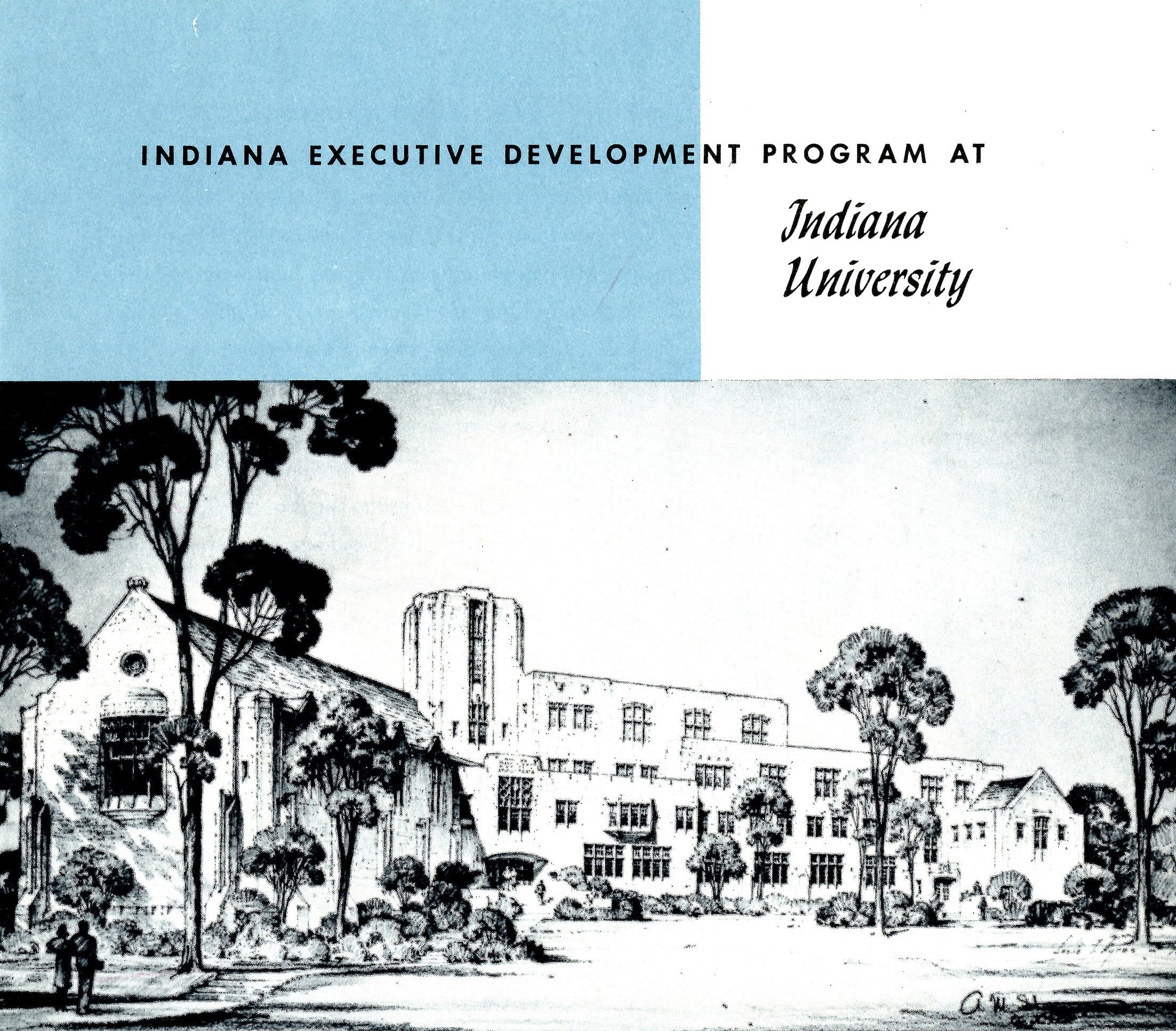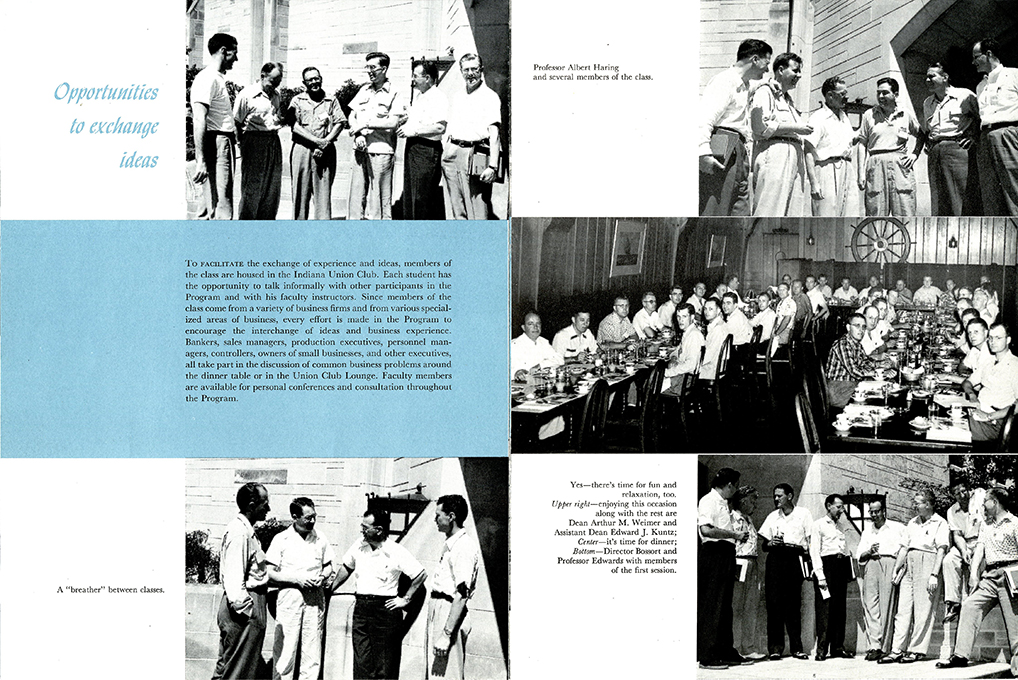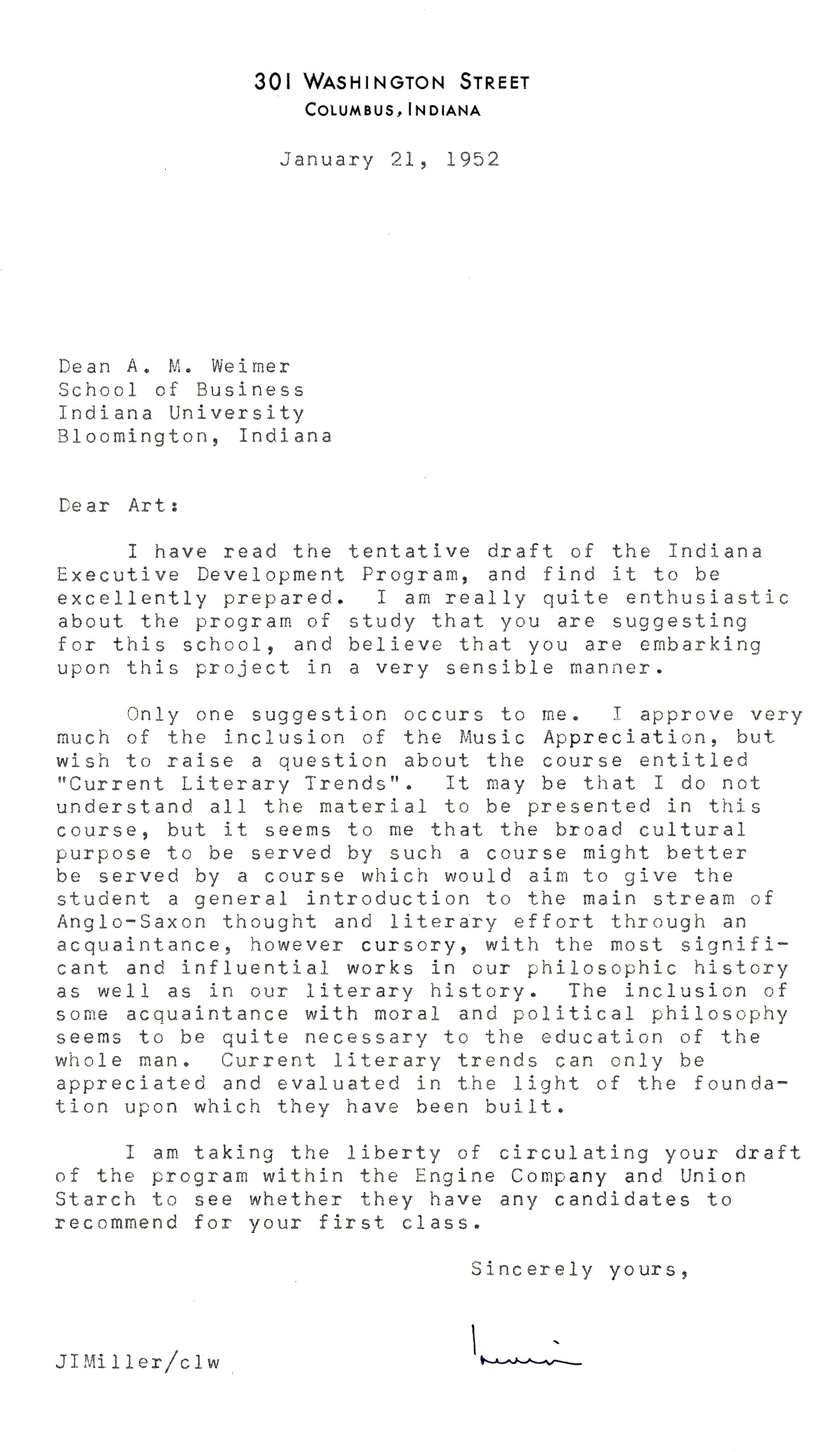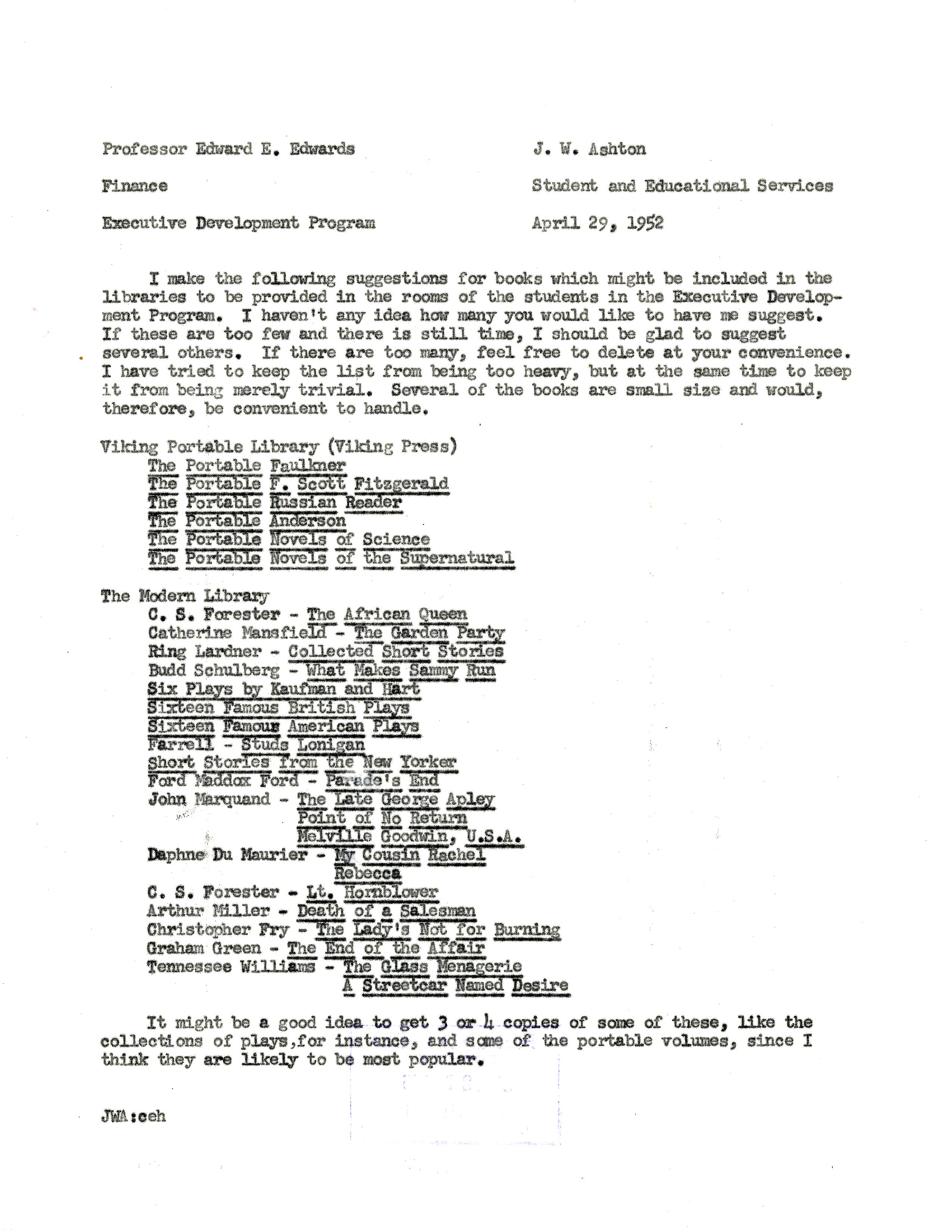
In the summer of 1952, IU’s Graduate School of Business launched an intensive summer program for business executives. For three weeks in June and July over two consecutive years, executives from across Indiana and the nation converged on the Bloomington campus. They stayed in rooms at the Union Club, ate their meals together with faculty members in the Memorial Union, and in the evenings they engaged in discussion groups and played tennis or golf. In between those activities, they took classes. A lot of classes. They took classes like Management of Business Finance, Management of Marketing Programs, and Business Cycles and Conditions. They also took classes in literature, music, and fine arts.

Designed with the needs of local and national businesses in mind, and often with their input and suggestions, the goal of the Executive Development Program was to prepare executives to take over top management positions in their companies. Praised by Herman B Wells as a pioneering program in adult education, the EDP prepared executives to face the needs of modern business life by developing the whole person, both professionally and personally. To do that, courses were offered in Speech Training for Executives, Music for the Executive, and Current Trends in Literature, in tandem with the classes covering purely business subjects.

In January 1952, Indiana industrialist and supporter of the arts Irwin Miller sent a letter to Dean of the School of Business Arthur M. Weimer, in which he made specific suggestions about the program’s curriculum. Miller wrote, “I approve very much of the inclusion of the Music Appreciation,” but he wondered if the class in “Current Literary Trends” shouldn’t include works in philosophic history as well as literary history. Miller was sufficiently impressed with the proposed curriculum that he circulated a draft of it within the Cummins Engine Company and the Union Starch and Refining Company to find candidates for the program’s first session.
Dean J. W. Ashton taught the Current Trends in Literature class. At Dean Weimer’s suggestion that libraries be set up in each room of the Union Club for all executives in the program, Ashton provided a list of suggested books. Ashton’s list includes works by William Faulkner, F. Scott Fitzgerald, Katherine Mansfield, and Daphne Du Maurier, as well as collections of Russian literature, novels of science, novels of the supernatural, and British and American plays.

Student response to Ashton’s class was very positive, and the Archives contains several appreciative letters. In one, dated July 17, 1952, a manager from the Indiana Farm Bureau wrote, “It is a sure fact that the information received will be of great benefit in performing my duties for my employers.”
In the 1960s, the program realized the need to include an international dimension. A brochure from 1966 no longer includes literature classes, but it does list courses in Fine Arts and evening Musicale events. It also emphasizes the international dimension. In June 1966, executives could choose between classes in Managerial Accounting, International Operations, or History of Art, Style, and Design.
With the institution of GenEd requirements a few years ago, students in the Kelley School of Business often take classes in literature, art, music, and international cultures to fulfill their requirements. But the School of Business has a long history – over sixty years – of encouraging a well-rounded education when it comes to facing the challenges of the modern business world.
Leave a Reply